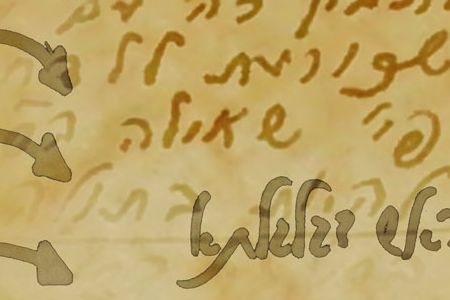Exodus, 27:20-30:10
This Week’s Torah Portion | Mar 1 – Mar 07, 2020 – 5 Adar – 11 Adar, 5780
In A Nutshell
In the portion, Tetzaveh (Command), the Creator provides Moses with additional details regarding the tabernacle, and commands the children of Israel to take olive oil to light the everlasting candle in the tent of meeting outside the veil, so it may burn from dusk to dawn.
The Creator instructs Moses to appoint Aaron and his sons, Nadav, Avihu, Elazar, and Itamar to be his priests. He elaborates on the commandment of preparing the holy garments “for honor and glory” (Exodus, 28: 2): the vest, fringe, coat, and the rest of the garments of the priest.
Afterward comes an explanation on the sanctification of Aaron and his sons for their role in the tabernacle, including the offering of an ox and two rams on the altar of the incense that will be positioned inside the tabernacle before the veil, and how the incense is to be made. Finally, the Yom Kippur (Day of Atonement) is mentioned, which is to take place once a year.

Commentary by Dr. Michael Laitman
The portion, Tetzaveh (Command), is very matter-of-fact, short, and pragmatic. The whole of the substance of creation is the desire to receive. This is the solid basis from which we should begin. We feel the will to receive within us divided into four levels: still, vegetative, animate, and speaking. All our desires are divided in this manner, and we give them the shape of bestowal, namely to aim them toward giving. All desires must be aimed toward our connection “as one man with one heart,”[1] with love of others, as in “love your neighbor as yourself.”[2]
To the extent that we correct each one of our desires, we shape the image of man—becoming similar to the Creator. This is Adam HaRishon (the first man), who shattered and divided into myriad souls. Our purpose is to reassemble those souls into that single soul. We achieve this by annulling our egos and connecting all our desires. The connection is on the levels of still, vegetative, animate, and speaking. In these degrees we gradually reconnect everything into the new reality that the Torah narrates.
First, the oil for the lamp is a special oil, which must be lit in a special way. Subsequently, from the emitted light we can prepare the priesthood garments that clothe the will to receive.
The will to receive remains the same whether it strives to benefit others or itself. The difference lies in how we use it—for our own sake or for the sake of others. That is, do we want to use it to benefit ourselves although it is detrimental to others, or do we want to benefit others? There are two options with myriad variations.
Continue reading “Tetzaveh (Command) Parsha – Weekly Torah Portion”
